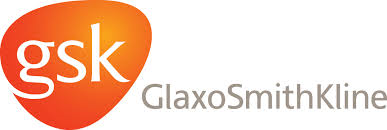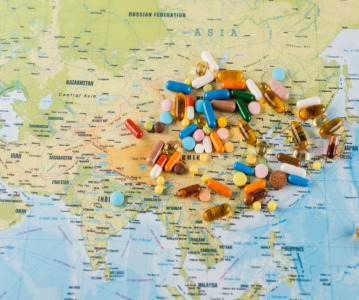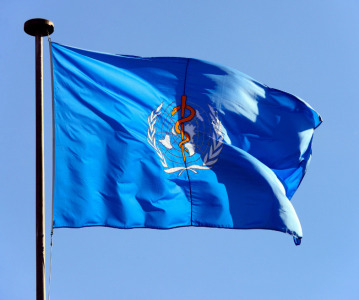GSK’s Malaria Candidate Vaccine, Mosquirix Receives Positive Opinion from European Regulators for the Prevention of Malaria in Young Children in Sub-Saharan Africa

GSK has announced that the Committee for Medicinal Products for Human Use (CHMP) of the European Medicines Agency (EMA) has adopted a positive scientific opinion for its malaria candidate vaccine Mosquirix, also known as RTS,S, in children aged 6 weeks to 17 months. Following this decision, the World Health Organization (WHO) will now formulate a policy recommendation on use of the vaccine in national immunisation programmes once approved by national regulatory authorities.
RTS,S, which was developed in partnership with the PATH Malaria Vaccine Initiative (MVI), is the first candidate vaccine for the prevention of malaria to reach this milestone. While other vaccines tackle viruses or bacteria, RTS,S has been designed to prevent malaria caused by the Plasmodium falciparum parasite, which is most prevalent in sub-Saharan Africa (SSA).
The CHMP scientific opinion is a key step in the regulatory process toward making RTS,S available alongside existing tools currently recommended for malaria prevention. The positive opinion for young children was based on the review of data assessing the candidate vaccine’s safety, efficacy and quality. Clinical data submitted for CHMP assessment were mainly from a Phase III clinical trial programme involving more than 16,000 young children that was conducted by 13 African research centres in eight African countries (Burkina Faso, Gabon, Ghana, Kenya, Malawi, Mozambique, Nigeria, and Tanzania).
Data from this trial programme demonstrate that over the first 18 months following three doses of RTS,S, malaria cases were reduced by almost half in children aged 5–17 months at the time of first vaccination and by 27% in infants aged 6–12 weeks. At study end, four doses of RTS,S reduced malaria cases by 39% over four years of follow-up in children, and by 27% over three years of follow-up in infants. In areas of the highest malaria burden, more than 6,000 clinical malaria cases were prevented over the study period for every 1,000 children vaccinated. The efficacy of RTS,S was evaluated in addition to existing malaria control measures, such as insecticide treated bed nets, which were used by approximately 80% of the children and infants in the trial.
Sir Andrew Witty, CEO of GSK said: “Today’s scientific opinion represents a further important step towards making available for young children the world's first malaria vaccine. While RTS,S on its own is not the complete answer to malaria, its use alongside those interventions currently available such as bed nets and insecticides, would provide a very meaningful contribution to controlling the impact of malaria on children in those African communities that need it the most. The work doesn’t stop here and GSK remains committed to investing in R&D for malaria vaccines and treatments to find more ways to tackle this devastating disease.”
Dr David C. Kaslow, Vice President of Product Development at PATH said: “Today marks a significant scientific milestone for the long-standing partnership to develop a vaccine, yet several more steps remain before a malaria vaccine might reach the young children in Africa who most need protection against this deadly human parasite. PATH will continue to work with GSK and other partners to ensure that the evidence is available, as soon as possible, to support informed decision-making on those remaining steps.”
GSK has committed to a not-for-profit price for RTS,S so that, if approved, the price of RTS,S would cover the cost of manufacturing the vaccine together with a small return of around 5% that will be reinvested in R&D for second-generation malaria vaccines, or vaccines against other neglected tropical diseases.
Related News
-
News Pharmaceutical industry supports COP28 health stance in joint statement
As COP28 takes place over this week in Dubai, UAE, several bodies in the pharmaceutical and health industries have come together to announce support of key movements in sustainability in the sector, and to recognise sustainability as a health issue.&nb... -
News Biden backs Cold-War measures to shore-up medical supply chains
In a recent strategy to combat rising inflation and the cost of living crisis, President Joe Biden has invoked a Cold War-era act to increase investment in a selection of medicines and supplies. -
News CPHI Podcast Series: What does the changing US Pharma market mean for industry and patients alike?
In this week's episode of the CPHI Podcast Series Lucy Chard, Digital Editor for CPHI Online is joined by James Manser to discuss the political and market changes in the US pharma field. -
News Which 10 drugs are open to price negotiation with Medicare in the USA?
The Centres for Medicare & Medicaid Services, under the Biden administration in the USA, has released a list of the 10 drugs that will be open to price negotiations as part of the new legislation under the Inflation Reduction Act (IRA). -
News 10 Major Drug Approvals So Far in 2023
Last year, 37 novel drugs were approved by the FDA, this was a high number for such a category, and covered many fields including oncology, demonstrating how promising further research is, and how it is only continuing to build. To date, there are alre... -
News Novartis agrees for copies to be made of cancer drug to reach poorer countries
Novartis signs agreement with MPP to have generics of it's leukemia drug made so that it can be more easily distributed to the world's poorer countries. -
News CPHI Podcast Series: outsourcing and manufacturing trends
Listen to the CPHI Podcast Series this June to hear Gil Roth of the PBOA speak with Digital Editor Lucy Chard about the biggest trends and topics to watch in pharma outsourcing and manufacturing at the minute. -
News New WHO health emergency guidelines expect full transparency from Big Pharma
The WHO are proposing a new set of pandemic guidelines to set out how future global health crises should be handled.
Position your company at the heart of the global Pharma industry with a CPHI Online membership
-
Your products and solutions visible to thousands of visitors within the largest Pharma marketplace
-
Generate high-quality, engaged leads for your business, all year round
-
Promote your business as the industry’s thought-leader by hosting your reports, brochures and videos within your profile
-
Your company’s profile boosted at all participating CPHI events
-
An easy-to-use platform with a detailed dashboard showing your leads and performance







